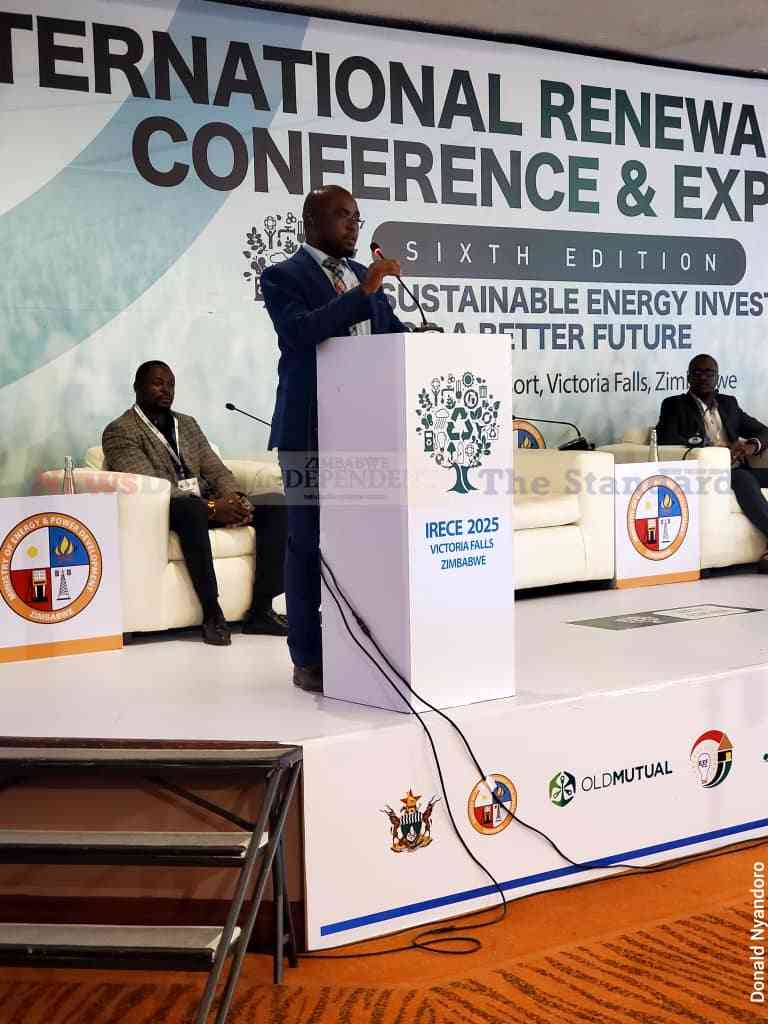
THE National Venture Capital Company of Zimbabwe (NVCCZ) is seeking external funding to support its initiative to finance local startups and small-to-medium enterprises (SMEs). The NVCCZ was established by the Treasury to provide financial support to startups and SMEs with bankable projects. Its primary goal is to bridge the funding gap and catalyse innovation and economic growth across the country. NVCCZ is expected to receive funding from the government as initial seed capital to support startups and SMEs. Our business reporter, Ashton Ndakusiya (AN), spoke to NVCCZ chief executive officer Tinotenda Kambasha (TK) to gain deeper insights into the company’s strategy and objectives. Below are excerpts of the interview:
AN: Tell us more about the National Venture Capital Company of Zimbabwe?
TK: The NVCCZ is the brainchild of the Ministry of Finance under President Emmerson Mnangagwa’s leadership. We were created to bridge the gap between incubation hubs, startups, and commercialisation. You may have noticed that the President ensured that every university had incubation hubs for innovation. In addition to universities, there are also institutions like HIT (Harare Institute of Technology) and various polytechnics. Many innovators from these institutions were winning prizes, but their ideas were not being commercialised or brought to market. Our role is to support them, nurture them, provide funding, and grow alongside them as partners. Unlike other financial institutions such as Smedco or the Empowerment Bank, we do not simply lend money. Instead, we form partnerships and guide businesses throughout their journey. Our goal is to grow with them, not just provide loans.
AN: What specific sectors or industries are you prioritising for venture financing or seed capital? How do you identify viable projects?
TK: We are not restricting ourselves to specific industries, but some key sectors naturally stand out due to their strong presence in the market. These include manufacturing, agriculture, mining, and ICT.
However, we are open to all innovative ideas, even in less traditional sectors such as the arts. Our goal is to support projects that have the biggest impact across the country. While many startups lack capital or assets, we expect them to demonstrate that their projects are viable through well researched cash flow projections and practical business models. Additionally, our selection process aligns with the government’s Vision 2030 and NDS1/NDS2 (National Development Strategy) strategies, prioritising women, youths, and people with disabilities. Our first three funded projects reflect this approach.
A tomato processing plant run by a 22-year-old entrepreneur, Humber electric scooters designed exclusively for women, improving decentralised mobility, and a telehealth project led by a nursing student expanding access to healthcare. These projects are spread across different regions, reinforcing our commitment to devolution and national development.
AN: What do startups need to become attractive for funding?
- Chitungwiza Municipality owed $2bn
- Probe into NSSA delayed
- Zimra garnishes gem miner’s bank accounts
- Zanu PF frustrating Mbare flats rehab: Mayor
Keep Reading
TK: Startups must be able to present a compelling business case. A strong application includes well prepared documents, a clear problem solving approach, and a focus on impact. We believe that Zimbabwe must develop its own solutions rather than replicating models from Silicon Valley.
Innovation in Zimbabwe must address our unique challenges whether through new agricultural techniques, drought-resistant crops, or cost-effective water purification solutions. The key is to develop intellectual property and innovations that serve local needs rather than competing in global spaces where we lack resources or rights.
AN: Do startups need to be registered before seeking venture capital?
TK: In the future, we plan to assist with business registration. Many young entrepreneurs lack the funds or knowledge required to register their businesses. Currently, we do not require formal registration at the application stage. If we see potential in a project, we can guide entrepreneurs through the registration process.
We are working on a streamlined approach to help startups register their companies, open bank accounts, and complete regulatory requirements with Zimra (Zimbabwe Revenue Authority) and Nssa (National Social Security Authority).
AN: How do you ensure that youth-led businesses have equal access to venture financing? What criteria do you use to assess eligibility?
TK: Awareness is key. We have launched an aggressive outreach campaign, including visits to universities and student associations across all ten provinces. This ensures that young entrepreneurs know about our funding opportunities and can engage with us directly. For those who cannot access our website, we provide alternative application methods, including email submissions and physical copies.
We do not want to exclude promising entrepreneurs due to technological limitations.
Eligibility is based on project impact, alignment with national development goals, and adherence to SDG (Sustainable Development Goals) targets. We prioritise projects with broad social and economic benefits rather than those that serve only a few individuals.
AN: How do you measure the impact of your investments in terms of employment creation, value addition, and innovation?
TK: We use several key performance indicators, including employment creation, return on investment, and project diversity. Value-addition is straightforward projects such as the tomato processing plant enhance agricultural value chains, while electric scooters improve mobility. Innovation is measured by the novelty and effectiveness of solutions. We assess whether a project introduces a new concept, improves efficiency, or scales an existing idea in a transformative way.
AN: Would the current liquidity crunch limit your ability to fund startups?
TK: Yes, this is why we are actively seeking partnerships with development agencies, pension funds, and international investors. While limited liquidity restricts the number of projects we can fund, we can still provide value in other ways — offering business expertise, forming strategic partnerships, and facilitating joint ventures.
In some cases, businesses may not need direct funding but rather better collaboration. For example, industries with overlapping operations could merge resources instead of competing for scarce capital. By fostering joint ventures and industry consolidation, we can create value even in a constrained financial environment.
AN: With all the dead capital in Zimbabwe and government-funded projects that have failed to support local industry, how will your entity succeed where others have failed?
TK: We analysed why others failed and why we are sitting on debt-laden assets. What we realised is that, in the past, not enough due diligence was conducted, and there was a lack of proper monitoring and evaluation. These two areas are critical.
It is essential to ensure that the businesses we invest in make sense, solve a real problem, and are scalable. We also focus on how a business can grow and guide it in the right direction. We are not here to hold the hands of the businesses we invest in, but we do assist them. We will review their management accounts on a monthly basis to identify potential issues before they arise.
Another key aspect of our approach is that we do not disburse funds upfront. If a project requires US$100 000, we release funds in stages based on milestones. For example, we provide the first
US$10 000 for equipment. If the recipient follows through on their commitments, we continue funding. If they fail to take the next step, we withhold further funds. This prevents a situation where all the money is given at once, only for the project to fail. By structuring funding this way, we minimise losses. We might lose
US$10 000, but we will not lose the remaining US$90 000. That is how we manage risk effectively.
AN: What is your outlook as the national venture capital company of Zimbabwe?
TK: We are extremely excited and energetic about the opportunities ahead. Where others see challenges, we see potential. We are particularly excited about untapped areas such as Binga, where there are opportunities in sectors such as innovation, manufacturing, agriculture, mining, and ICT.
We want to challenge the norm and show that it is possible to think differently. Our outlook is bullish, and we are eager to make a meaningful impact.
AN: What challenges do you foresee in developing local venture capitalists and attracting foreign investment?
TK: The biggest challenge is to understand how to attract capital. That is where we hope to make a difference — not just by identifying investment opportunities but also by educating entrepreneurs. We plan to collaborate with institutions and educational programmes to help businesses become investment-ready. Teaching these skills does not just benefit one project; it empowers individuals for life. We see this as a way to create long-term, sustainable economic growth.











